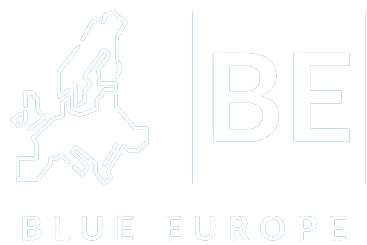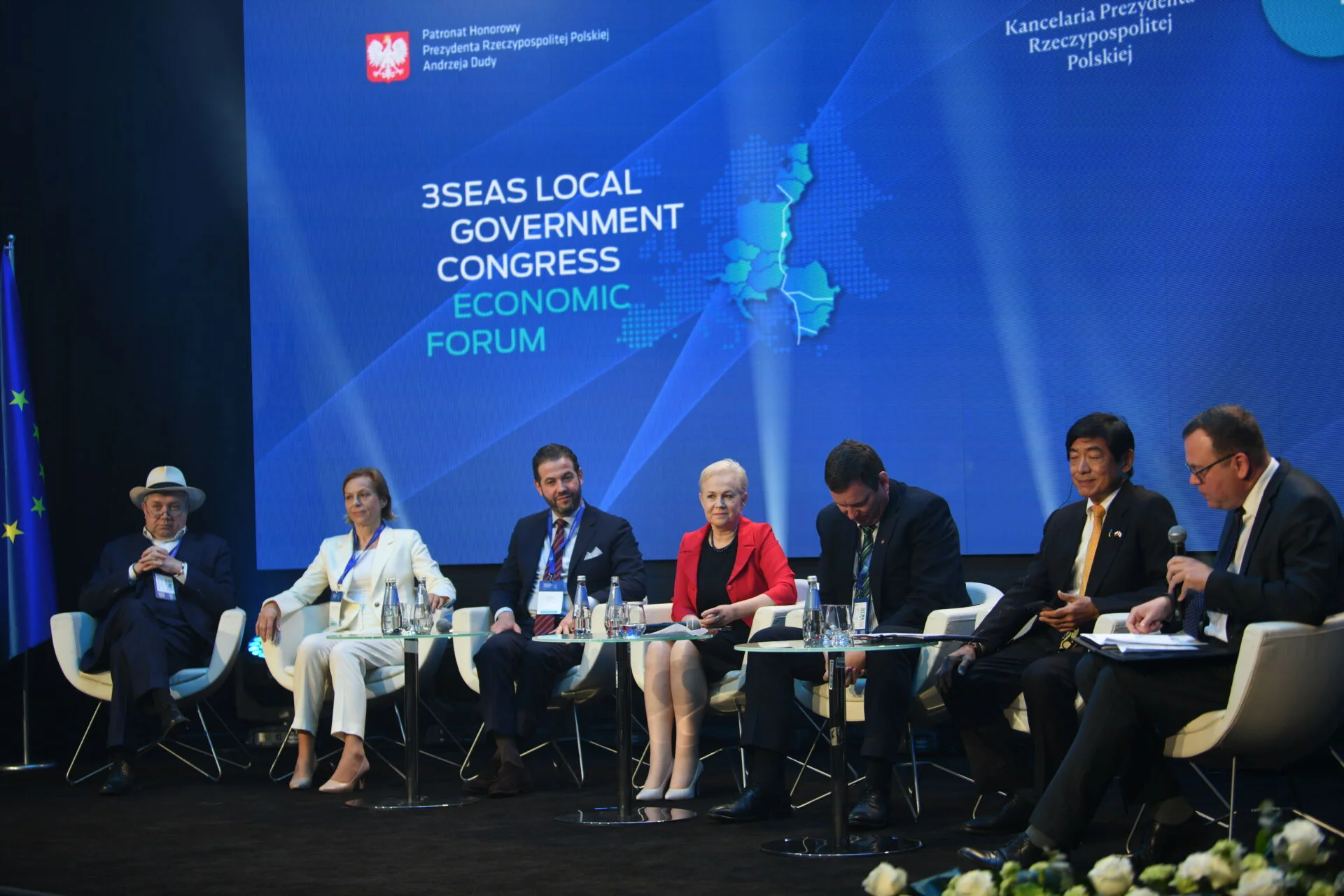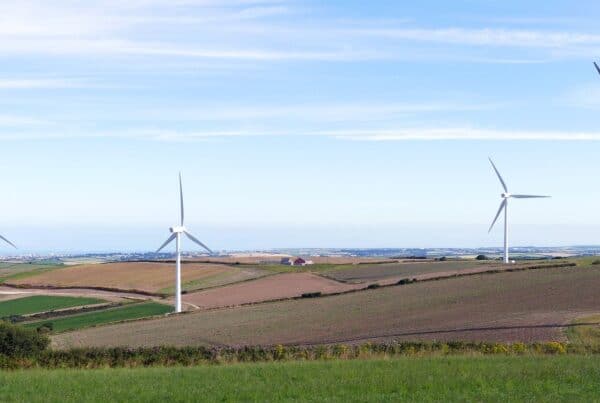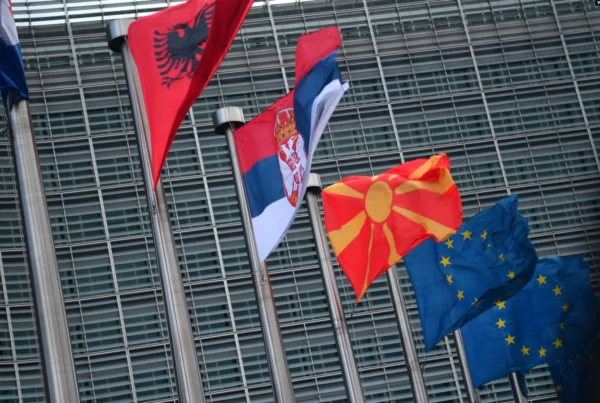Commentary by Andrea Bogoni. Interview conducted by Jan Normann.
Introduction: the role of the Three Seas Initiative in the current scenario
The Three Seas Initiative (TSI/3SI) has emerged as a vital platform for enhancing regional cooperation among the countries located between the Adriatic, Baltic, and Black Seas. Launched in 2015, the initiative is designed to strengthen market economies, infrastructure connectivity, and energy security in Central and Eastern Europe [1]. These goals are increasingly relevant given the region’s strategic importance in terms of economic growth and the rising geopolitical challenges it faces.
Poland, one of the TSI’s co-founders and most active proponents, views the initiative as a key instrument in achieving several foreign policy objectives. First, the TSI allows Poland to enhance its influence within the European Union by advocating for greater cohesion among the smaller and newer member states. Poland’s recent recommitment to the TSI, particularly through increased investment and diplomatic engagement, has reinvigorated the initiative and positioned it as a central pillar of the country’s foreign policy [2]. Particularly, by fostering stronger ties among these countries, Poland aims to counterbalance the dominance of larger EU powers, such as Germany and France. Furthermore, the TSI’s role in fostering regional stability and development will likely grow even more significant in the coming years. The TSI is also seen as a means to secure Poland’s energy independence, particularly through diversification of energy sources and routes. The project’s emphasis on creating north-south infrastructure corridors is a vital element of the diversification of energy sources as a means of moving away from Russian energy supplies. This aspect of the TSI is in quite a catch with the wider EU energy strategy and has become more important based on the existing conflict in Ukraine that has exposed vulnerabilities in European energy security.
The United States’ support for the TSI further underscores its strategic importance. By backing the initiative, the U.S. aims to strengthen its ties with Central and Eastern Europe, a region that has become increasingly important in the context of NATO and transatlantic relations [3]. Additionally, as Europe faces increasing global challenges, particularly due to the ongoing conflict in Ukraine, this support also serves to counter Russia’s influence in the region, making the TSI a critical component of the broader Western strategy in Europe.
To explore these critical issues, we turned to Agnieszka Jolanta Orzelska-Stączek[4], a leading expert in international relations and a professor at the Institute of Political Studies of the Polish Academy of Sciences (ISP PAN). With her extensive research on Polish foreign policy and regional cooperation, Orzelska-Stączek has been at the forefront of analyzing and shaping the discourse around the TSI. In this interview, Orzelska-Stączek provides valuable insights into why the TSI is essential for Central and Eastern Europe and how it impacts broader European and global politics.
Interview with Prof. Orzelska-Stączek
1. Can you tell us a little bit about yourself and your role at the IV Three Seas Local Government Congress in Lublin?
I am in charge of a project entitled Research Centre for the Three Seas Initiative (Centrum Badawcze Inicjatywy Trójmorza), which is being implemented at the ISP PAN by a team under my direction since 2022. The aim of the project is the development of scientific research and the popularisation of knowledge on regional cooperation within the EU, with particular emphasis on the TSI. The Centre’s objectives include the diffusion of scientific knowledge on regional cooperation, as well as the development of scientific research on the TSI.
My role at the Fourth Three Seas Local Government Congress was focused on a panel I organised with partners from several countries, entitled “The Three Seas Initiative: an original cooperation project in Central Europe. What is the primary motive of the intra-EU concept of strengthening infrastructure from Estonia to Greece?” It was moderated by Sandra Baniak from the Centre for Eastern Studies, and the panellists included Prof. Grigoris Zarotiadis, Aristotle University of Thessaloniki; Dr. Ieva Gajuskaite, General, Jonas Žemaitis Military Academy; Dr. Iva Lopižić, University of Zagreb; Director Lukasz Wojdyga from the Warsaw Enterprise Institute. Participation in such a panel was a guarantee of an interesting discussion for me, and the Congress was an opportunity to develop these discussions beyond this panel as well.
The speech by Polish President Andrzej Duda at the opening of the second day of the Congress attracted the most attention. The President emphasised that “the Trilateral Initiative has a very concrete dimension. It is first and foremost an area of security – in fact not the military security, because we have the North Atlantic Alliance for these matters. I am thinking here of security understood in the economic and social context, which consists of transport, energy and digital infrastructure” [5].
I had the honour of participating in a panel organised in cooperation with the KPRP and moderated by Dr Adam Eberhardt at the University of Warsaw’s Centre for East European Studies (Studium Europy Wchodniej UW). Among the panellists were Japanese Ambassador Akio Miyajima, Latvian Ambassador Juris Poikans, Special Representative of the President of the Republic of Poland for 3SI Beata Daszyńska-Muzyczka, as well as representatives of other institutions [6]. These were all important and interesting speeches.
2. What were the main objectives of the Fourth Three Seas Congress in Lublin?
The main objective of the self-government congress is to strengthen the development of cooperation at the local level, in terms of administration and business in the area of the TSI. The Congress provides a unique opportunity for personal meetings and discussions. It has become a cyclical international event attracting representatives of government and local government administration and business. The participation of the scientific community is increasingly noticeable, which pleases me. Guests are coming not only from countries participating in the TSI, but also from many others. Between 2021 and 2023, a total of almost 3,500 people from 25 countries attended the Congress [7].
3. What were the key themes and issues that were addressed during the Congress?
The key themes are economic cooperation and infrastructure – its development in the areas of transport, energy and digitalisation are immutable cornerstones of cooperation within the TSI.
In the face of Russia’s aggression against Ukraine, the importance of the security context has increased. The development of infrastructure connections linking the north and south of the EU has taken on greater importance, and there is often talk of dual use mobility, because after all, infrastructure can serve businesses, but it is also crucial in the military dimension.
The congress was being held in Lublin, from where it is close to the border with Ukraine, and the subject of the threat from Russia is particularly topical. The manner of Russian aggression against Ukraine, the number of victims, attacks, atrocities, is something that previously seemed unimaginable. It is now one of the key topics at conferences and congresses on cooperation in Europe in all areas.
4. What were some of the specific projects or initiatives that were highlighted during the Congress?
Flagship projects presented at the Congress include the TSI Regions Network and the TSI Universities Network, with the Economic Forum being a separate part.
Let us remind that the TSI Regions Network was established in June 2021 and today includes 25 regions from 7 countries: Poland, Bulgaria, Hungary, Lithuania, Romania, Slovakia and – as associated partners – Ukraine [8]. The TSI University Network initiated by the Catholic University of Lublin is also developing.
5. What historical factors have led to Poland becoming the leader of the Initiative?
Firstly, the TSI is an informal form of cooperation, there are no permanent structures and formally there is no leader either. Poland, from the beginning, has shown great commitment to the development of this cooperation and informally is sometimes seen as a leader. This depends on the degree of commitment of the current authorities and may change. Note that after the change of power in the autumn of 2023, the number of Congress partners in the 2024 edition has changed significantly, which is worth analysing. The strong polarisation on the internal political scene negatively affects Polish foreign policy.
Secondly, in my opinion, it was not historical factors that decided that Poland was one of the initiators of the establishment of this format and became involved in its development. The decisive factors were conditions at the level of individuals, or to put it another way, the activity of specific individuals, President A. Duda and President Kolinda Grabar-Kitarović of Croatia at the initial stage. The foundation for this cooperation is not historical factors, but economic and infrastructural needs and potential benefits for the individual countries, the region and the EU as a whole.
6. What are the challenges facing Poland in promoting cohesion and cooperation between the countries of the TSI area?
The main challenge is to be able to communicate efficiently and effectively from Poland towards the partners, and to develop a clear, reliable and consistent message. It is about explaining what the Three Seas Initiative is, what it is not, what goals it has, what goals it does not have. For this, the Polish authorities need a strong base of experts and academics, dealing professionally with the subject, regardless of changes at the level of internal politics. Ignoring ‘unfashionable’ topics or constructing analyses that are supposed to be in line with the expectations of decision-makers carries specific risks.
7. Looking ahead, what is the projected impact of the TSI on Poland’s weight in European and global politics?
The potential is great, the development of cooperation within the framework of the Trilateral Initiative can increase the power of the voice of Poland and other Central European countries at the level of the European Union and in the global dimension.
It should be noted that the status of strategic partners of the Initiative is held by the European Commission, the USA, Germany, and Japan (which joined in April). This is an important and not coincidental step. Also interesting to note is the list of ‘like-minded states’ included in the declaration adopted at the 2024 TSI Vilnius Summit: Georgia, Montenegro, Israel, Turkey, the UK, Finland and Spain.
References and End Notes
- 3Seas, ‘Three Seas Story’, Three Seas Summit Vilnius 2024, n.d., https://3seas.eu/about/threeseasstory. ↑
- Julita Wilczek, ‘Poland’s Recommitment to 3SI Initiative Boosts Region’, CEPA, 29 March 2024, https://cepa.org/article/polands-recommitment-to-3si-initiative-boosts-region/. ↑
- Paolo Pizzolo, ‘The Geopolitical Role of the Three Seas Initiative: Mackinder’s “Middle Tier” Strategy Redux’, Europe-Asia Studies, 2 July 2024, https://www.tandfonline.com/doi/abs/10.1080/09668136.2023.2250106. ↑
- Agnieszka Jolanta Orzelska-Stączek is a Polish political scientist and professor at the Institute of Political Studies, Polish Academy of Sciences (ISP PAN). Specializing in international relations, her research primarily focuses on Polish foreign policy and regional cooperation in Central and Eastern Europe. She holds master’s degrees from the Warsaw School of Economics, the University of Warsaw, and Sciences Po Paris. In 2002, she earned her PhD with a dissertation on the impact of the Yugoslav conflict on U.S.-EU relations, which won the Prime Minister’s Award. Her work on the Three Seas Initiative (TSI) has been particularly influential in shaping the understanding of this regional cooperation project (ORCID, ResearchGate, Wikipedia). ↑
- 3SI Research Center, ‘Udział w panelu otwierającym: Samorządowy Kongres Trójmorza’, Projekt pt. Centrum Badawcze Inicjatywy Trójmorza, 16 June 2024, https://trojmorze.isppan.waw.pl/seminaria-i-konferencje/udzial-w-panelu-otwierajacym-samorzadowy-kongres-trojmorza/. ↑
- 3SI Research Center. ↑
- 3Seas Local Government Congress Economic Forum, ‘IV Kongres Trójmorza. 12-13 Czerwca 2024 w Lublinie – Samorządowy Kongres Trójmorza’, 16 May 2024, https://congress.lubelskie.pl/iv-kongres-trojmorza-12-13-czerwca-2024-w-lublinie/. ↑
- Województwa Lubelskiego, ‘Drugi dzień Samorządowego Kongresu Trójmorza – Urząd Marszałkowski Województwa Lubelskiego w Lublinie’, Oficjalny portal województwa lubelskiego, 14 June 2024, https://www.lubelskie.pl/aktualnosci/drugi-dzien-samorzadowego-kongresu-trojmorza/. ↑





